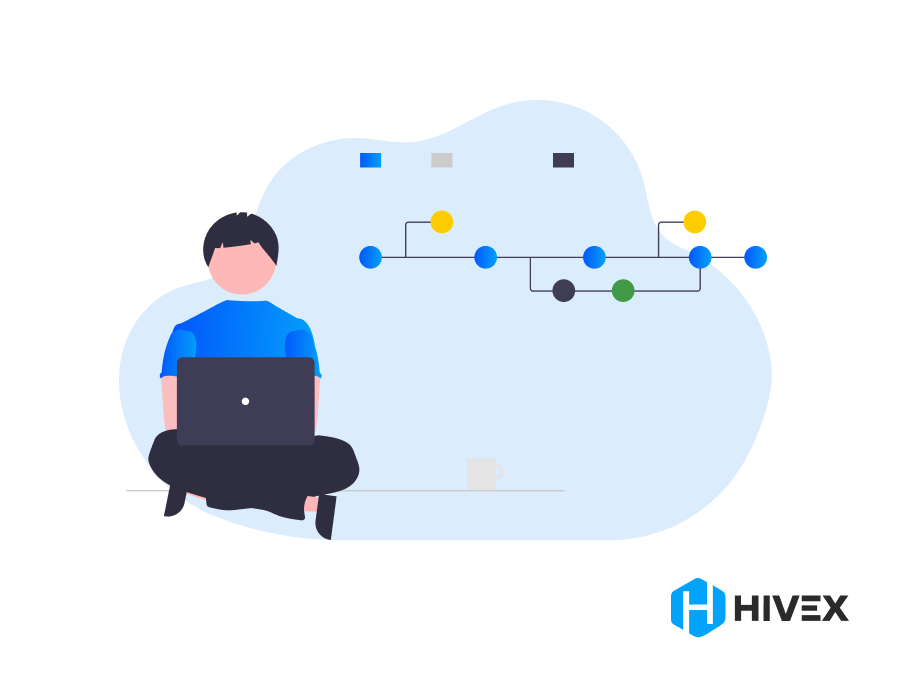Salesforce Developer Job Description and Responsibilities

Today, more than ever, companies rely on customer relationship management systems to streamline their operations and improve customer service. To harness Salesforce’s full potential, organizations require skilled developers who can design, customize, and deploy solutions tailored to their needs.
Throughout this article, we will explore responsibilities, skill requirements, job descriptions, career paths, and the impact Salesforce developers can have.
Quick Navigation
Salesforce Platform & Ecosystem
The Salesforce platform is a comprehensive suite of cloud-based tools designed to support various business functions such as sales, service, marketing, and more.
It provides an integrated environment where companies can manage their customer relationships, streamline their sales processes, and use powerful analytics to make informed decisions.
The platform is highly customizable, allowing businesses to adjust the software to their specific needs through custom applications and automation.
Basically, the Salesforce platform serves as a CRM system, but its capabilities extend to managing customer interactions and more. With built-in flexibility, it supports the development of everything from simple workflows to complex application architectures, all aimed at improving business efficiency and growth.
Salesforce Ecosystem
The Salesforce ecosystem is the connected environment of Salesforce customers, developers, partners, and other stakeholders.
This ecosystem thrives on collaboration and innovation, with numerous third-party applications and add-ons available through Salesforce’s AppExchange. It is also supported by a vast community of users who share best practices, development tips, and personal experiences with the platform.
Within this ecosystem, developers can use the Salesforce platform to create customized solutions that address unique business challenges.
They use the platform’s tools such as Apex (a programming language developed by Salesforce), Visualforce (a framework for creating custom user interfaces), and Lightning Components (for developing web apps for mobile and desktop devices) to improve functionality and user experience.
The Salesforce ecosystem not only provides the tools needed for development but also a supportive network that facilitates learning and innovation.
This allows businesses to continuously improve their processes and stay updated with technology and customer service, making the Salesforce platform and ecosystem essential components of modern business strategy.
Key Responsibilities of a Salesforce Developer

Salesforce engineers develop and implement solutions based on the company’s needs. This includes a wide range of tasks and responsibilities:
- Designing and customizing applications and functionalities within Salesforce:
Salesforce engineers design and customize applications to meet organization-specific requirements. They create custom objects, fields, workflows, and triggers that streamline processes and automate repetitive tasks. - Integrating Salesforce with other systems:
The Salesforce developer role involves integrating Salesforce with other systems, such as ERP or marketing automation platforms, to ensure a smooth flow of information and data synchronization. - Developing and maintaining Visualforce pages and Lightning components:
Salesforce provides developers with powerful tools like Visualforce and Lightning to create user interfaces that enhance the overall user experience. Salesforce engineers develop and maintain these pages and components, ensuring a seamless and intuitive user interface. - Collaborating with stakeholders:
To meet stakeholders’ needs, Salesforce engineers work closely with business analysts, project managers, and end users. Effective communication and collaboration are essential for understanding organizational goals and translating them into practical solutions. - Troubleshooting and resolving issues:
As with any software development role, Salesforce programmers encounter application issues and bugs that need to be resolved. They are responsible for troubleshooting and resolving these issues to ensure smooth functionality and minimize disruptions to the company’s operations. - Providing ongoing support and training:
Apart from creating and implementing solutions, developers provide ongoing support and technical training to end-users, helping them utilize Salesforce to its full potential.
As you can see, the Salesforce developer job is not just about writing code. It requires a combination of technical skills, business acumen, and effective communication to design and implement strategies that empower organizations to thrive in the digital age.
The Skills Required for a Salesforce Developer

Salesforce engineers play a key role in any organization that utilizes the Salesforce platform. To excel in this role, they must possess both technical and soft skills.
Technical Skills
Technical proficiency and relevant experience are crucial for engineers to excel in their roles. They must have a deep understanding of the Salesforce platform and its development tools.
This includes proficiency in Apex, Visualforce, Lightning Web Components, and other Salesforce development languages.
They should also be well-versed in web technologies such as HTML, CSS, JavaScript, and REST APIs.
In addition to the knowledge of Salesforce technologies, Salesforce engineers should also have experience with integration and data migration between different systems.
This involves understanding how to seamlessly transfer data between Salesforce and other existing applications or databases, ensuring data integrity and consistency.
Furthermore, Salesforce developers should be familiar with Agile development methodologies.
Agile is an iterative and collaborative approach to software development that emphasizes flexibility, adaptability, and continuous improvement. Its principles help them manage projects, address changing requirements, and deliver quality results.
Soft Skills
While technical skills matter a lot, the best Salesforce developers also possess strong soft skills that enable them to excel in their roles. Communication, collaboration, and problem-solving are all equally important.
One of the most important skills is strong problem-solving abilities. Developers must be able to analyze complex business requirements and devise innovative approaches that meet business needs. This requires critical thinking, attention to detail, and creativity.
Salesforce developers also need communication and collaboration skills. Effective communication with stakeholders and an understanding of their requirements are essential. Additionally, they must work effectively in a team environment, collaborating with other engineers, administrators, and business analysts.
A talented Salesforce developer always pays attention to detail. To maintain data integrity and ensure Salesforce platform functionality, one of the key duties is to ensure every aspect of their solution is thoroughly tested and error-free.
Salesforce Developers must also be flexible and adaptable as the business environment changes. This requires them to embrace change, learn, and continuously improve their skills.
You may also like: How Workday Developers Drive Innovation in Modern Businesses
Different Roles of Salesforce Developers
Salesforce developers occupy various roles within a company, each shaped by their distinct skills, interests, and the organization’s specific needs. These roles encompass diverse responsibilities and require specific skills, enabling developers to provide specialized Salesforce platform services and focus on different aspects of the whole Salesforce ecosystem.
Here are some prominent roles that Salesforce devs may fulfill:
1. Salesforce Application Developer
This role centers on the ability to develop custom applications within the Salesforce platform. Application developers leverage their expertise in Apex, Visualforce, and Lightning Components to develop custom applications that meet unique business needs and enhance the platform’s functionality. They work closely with stakeholders to collect requirements, design user interfaces, and ensure the applications perform well and are reliable.
2. Salesforce Integration Developer
Experts in this role specialize in using APIs to connect Salesforce with other systems, enhancing data flow and operational efficiency. They deploy APIs, middleware, and other tools to establish custom integrations that support the company’s Salesforce CRM analytics and overall data strategies. This role is crucial for those who manage Salesforce implementations and need a strong understanding of data modeling and web services.
3. Salesforce Technical Architect
Salesforce Technical Architects are responsible for the architectural design and strategic oversight of complex Salesforce implementations, ensuring scalability and optimal performance. They collaborate with other developers and stakeholders to create solutions that align with long-term business goals, requiring a deep understanding of the Salesforce ecosystem and a commitment to following best practices in Salesforce implementation.
4. Salesforce Lightning Developer
These developers focus on creating custom components and applications using the Salesforce Lightning framework, known for enhancing user interfaces and improving system functionality. Their work helps optimize the Salesforce platform experience, making it more responsive and effective for end-users.
In each of these Salesforce roles, developers are presented with unique challenges and opportunities for growth. By specializing in particular roles, they can sharpen their skills, increase their expertise, and significantly contribute to their organization’s success through effective Salesforce implementations and innovation within the Salesforce ecosystem.
Salesforce Developer Job Description Template
[Company Name] is looking for a Salesforce developer to join our team.
The ideal candidate will focus on crafting, developing, and deploying tailored solutions within the Salesforce platform that align with our organization’s strategic goals.
This role involves close collaboration with business analysts and project managers to accurately capture and implement requirements, along with the creation and management of comprehensive technical documentation to support the development process.
Key Responsibilities:
- Construct custom applications, features, and integrations specifically for the Salesforce platform, ensuring they serve the company’s needs effectively.
- Work directly with business analysts and project managers to understand, analyze, and fulfill business requirements.
- Develop and sustain detailed technical documentation, including design blueprints, testing procedures, and operational guides to support the applications’ lifecycle.
- Maintain the integrity and performance of Salesforce applications through methodical testing, debugging, and troubleshooting practices.
- Offer continuous support and maintenance for all Salesforce applications, addressing any emerging issues or necessary adjustments promptly.
Requirements:
- At least a Bachelor’s degree in computer science, information technology, or a related field.
- Demonstrable experience as a Salesforce developer with a robust understanding of the Salesforce platform, including its architecture and boundaries.
- Expertise in Salesforce development tools such as Apex, Visualforce, and Lightning Components. Knowledge of web development technologies including HTML, CSS, and JavaScript is essential.
- Strong problem-solving capabilities, with a keen analytical mindset.
- Excellent communication skills, capable of effectively articulating ideas and collaborating with various team members.
- Possession of Salesforce Developer certifications like Platform Developer I and II is highly desirable.
Interested candidates should submit their resumes to [Insert Your Contact Email].
Salesforce Developers: Tasks and Goals
Daily Tasks and Activities
Salesforce engineers’ days are usually filled with coding, collaboration, and problem-solving.
Depending on the organization’s needs, they may be responsible for:
- Designing and developing new Salesforce functionalities
- Customizing existing Salesforce applications to meet specific business requirements
- Collaborating with stakeholders, administrators, and other developers to gather and define project requirements
- Performing unit testing and debugging to ensure the quality and reliability of developed solutions
- Maintaining documentation and creating technical specifications for future reference
- Providing guidance and support to end-users
When designing and developing new Salesforce functionalities, engineers can unleash their creativity and problem-solving skills. They analyze the needs of a company and come up with innovative approaches that streamline processes and improve overall efficiency.
Another essential aspect of a Salesforce Developer’s daily key duties is customizing existing Salesforce apps.
They work closely with company stakeholders to understand their specific requirements and tailor the Salesforce platform accordingly. This may involve creating custom objects, fields, and workflows, as well as integrating external systems to ensure a seamless user experience.

Software engineering relies heavily on collaboration. Every developer works closely with the Salesforce administrator and other team members to gather and support business requirements.
This collaborative approach ensures that the developed web services align with the organization’s goals and objectives. It also allows advanced knowledge sharing and fosters teamwork.
Unit testing and debugging are essential to ensure the quality and reliability of the developed salesforce products. This attention to detail ensures that application development functions as intended and provides a smooth user experience.
Maintaining documentation and creating technical specifications is crucial for future reference. A Salesforce developer documents their code and configurations to ensure other team members can understand and maintain the system. This documentation also serves as a valuable resource for troubleshooting and future enhancements.
Another important responsibility of a Salesforce Developer is to provide end-user support and guidance. During training sessions, creating user guides, and answering any questions or issues that arise, they assist users in using the Salesforce platform effectively.
Long-Term Goals and Objectives
Beyond the day-to-day tasks, Salesforce engineers also contribute to the organization’s long-term goals and objectives. This may include:
- Optimizing Salesforce apps to enhance performance and scalability
- Collaborating on system upgrades and data migrations
- Driving innovation by leveraging new Salesforce features and functionalities
- Participating in continuous learning and professional development to stay updated with the latest industry trends
Optimizing Salesforce applications is an ongoing effort to improve performance and scalability. Salesforce engineers analyze system performance metrics, identify bottlenecks, and implement optimizations to ensure applications can handle increasing data volumes and user loads.
This involves fine-tuning configurations, optimizing code, and leveraging caching mechanisms.
Salesforce programmers collaborate on system upgrades and migration projects to work on large-scale initiatives.
They contribute to the planning, testing, and execution of system upgrades, ensuring a smooth transition and minimal disruption to operations.
Migration projects involve moving data and functionalities from legacy systems to Salesforce. This requires careful planning and execution to ensure data integrity and seamless user experience.
Driving innovation is a key aspect for every Salesforce developer. They stay updated with the latest Salesforce features and functionalities and explore how these can be leveraged to improve business processes and drive efficiency.
By identifying innovation opportunities, Salesforce engineers contribute to the organization’s growth and competitiveness in the market.
Continuous learning and professional development are essential to stay updated in the rapidly evolving Salesforce world. They actively participate in technical training programs, webinars, and industry events to expand their knowledge and skills.
This commitment to learning ensures Salesforce experts are equipped with the latest tools and techniques to deliver high-quality solutions.
Career Path for a Salesforce Developer

If you are interested in becoming a Salesforce developer, you should know that there are many entry-level positions available in this field.
Many companies actively seek young graduates with technical skills to join their teams. Despite your newness to the industry, these companies understand that you can grow and excel.
However, keep in mind that there are several educational requirements to become a Salesforce developer. 80% of Salesforce devs hold a bachelor’s degree, and 80% hold a master’s degree. Salesforce engineers usually study computer science, electrical engineering, or information technology.
Once you land an entry-level position as a Junior Salesforce Developer, you’ll have the opportunity to gain valuable experience and proficiency in the field. You’ll work alongside experienced professionals providing you with on-the-job training and mentorship programs.
These programs are designed to nurture your growth and help you become a skilled Salesforce developer.
As you gain more experience and expertise in the Salesforce ecosystem, various advancement opportunities open up for you.
One exciting aspect of being a Salesforce developer is the ability to specialize in specific domains. For example, you can focus on Salesforce Marketing Cloud, Service Cloud, or Commerce Cloud, depending on your interests and strengths.
Additionally, if you have a passion for leadership and enjoy guiding and mentoring others, you can pursue roles such as Salesforce Technical Architect or Development Manager. These positions allow you to showcase your technical skills and demonstrate your ability to lead and manage a team of developers.
Continuous learning is the key to success in this field. As a Salesforce developer, it’s important to stay updated with industry trends and advancements.
Salesforce regularly releases updates and new features, and it’s crucial to stay on top of these changes to ensure you’re providing the best solutions for your clients or company.
Obtaining Salesforce certifications is another essential aspect of career growth in this field. These certifications validate your skills and knowledge, making you a more desirable candidate for job opportunities.
Salesforce offers a range of certifications, allowing you to showcase your expertise in various areas of the platform.
So, whether you’re just starting your journey as a Salesforce developer or looking to advance in your career, there are plenty of opportunities waiting for you. With dedication, continuous learning, and a passion for Salesforce, you can build a successful and fulfilling career in this field.
The Impact of a Salesforce Developer on a Business

Enhancing Business Processes
With their technical knowledge and understanding of business processes, Salesforce developers play a crucial role in enhancing efficiency and productivity across departments.
By developing customized solutions, they streamline workflows, automate repetitive tasks, and provide real-time insights, enabling organizations to make data-driven decisions and improve customer experiences.
Driving Business Growth
As businesses strive for growth, Salesforce engineers contribute by implementing solutions that support sales and marketing efforts. These solutions improve customer retention rates and drive revenue. Their technical expertise helps businesses leverage Salesforce’s full potential, empowering them to stay competitive and seize new opportunities in the market.
Customer relationship management is evolving, making Salesforce programmers increasingly important. Their ability to bridge the gap between technology and business processes enables organizations to harness Salesforce’s full potential and propel growth.
Whether you are considering a career as a Salesforce developer or looking to hire one for your organization, understanding their roles, responsibilities, and impact on business is crucial for success.


